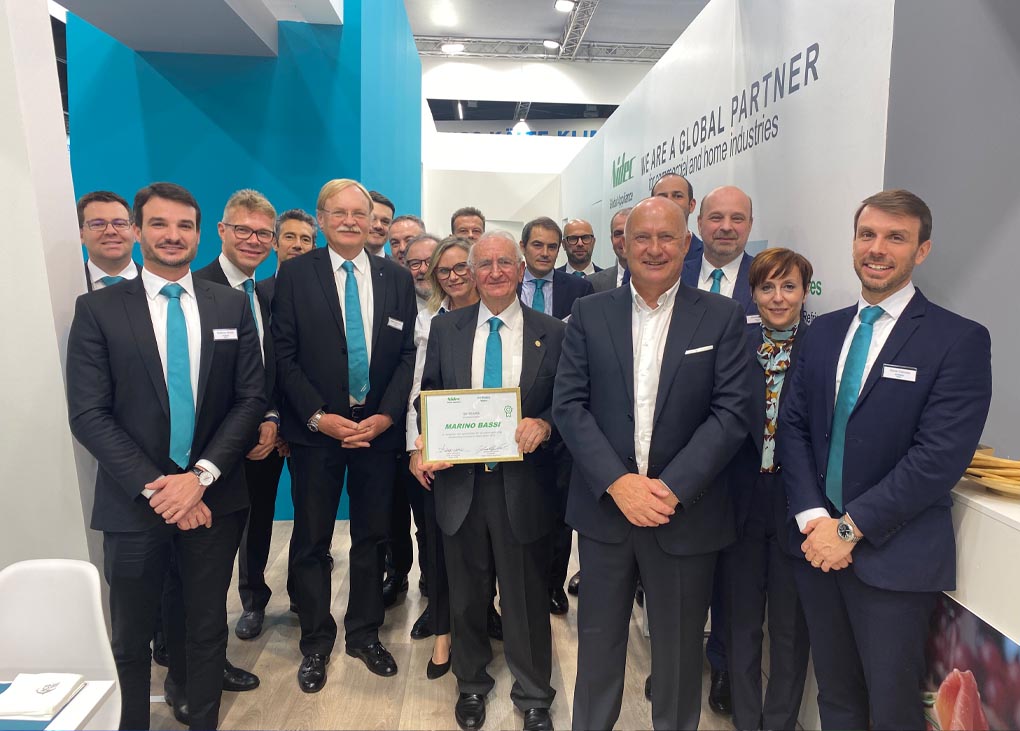For Marino Bassi, Key Account Senior Advisor at Nidec Global Appliance, 2022 marks 50 years in the European refrigeration industry.
A member of the Embraco team since 1994, Bassi has held many roles within the business, and is now dedicated to the portfolio for commercial applications.
Among Bassi’s many achievements, says employer Embraco, was his participation in the introduction of hydrocarbon refrigerants as a low global warming potential (GWP) solution for commercial applications in Europe, anticipating the demand for more sustainable approaches seen in the industry today.
Italian-born Bassi graduated in Electrical Engineering at the Pavia University of Studies (Lombardy). The refrigeration sector was gaining popularity among end-users across Europe, and in 1972, he was appointed as technical support in Aspera, which was later acquired by Embraco.
“Embraco had this attitude to be the first, a vision of growth,” says Bassi. “There was an admirable ambition, a willingness to invest in the products and continuously improve them. That got me excited to be part of it.”
Bassi’s connection with Embraco’s innovative culture saw him participate in many milestones of the refrigeration sector’s technological evolution.
“Right after the diffusion of hydrocarbons, which Embraco strongly contributed to, the launch of variable speed compressors in commercial refrigeration – and the energy savings brought by this technology – was a huge moment for environmental sustainability and for operative costs reduction,” says Bassi. “Variable speed is now strongly demanded by customers and retailers: the technology allows consistent indirect emissions reduction and, for the people who pay the energy bills, important cost saving. In addition, its adoption facilitates compliance with the energy efficiency regulations of the cabinets.”
Life-long learning
Bassi says he considers himself a long-term trainee.
“I try to keep myself open and curious and see my experience as a background for grasping customers’ needs and addressing innovation,” says Bassi. “I like to say: innovative experience.”
He is now dedicated to providing specialised training for partners, end-users, refrigeration equipment manufacturers and society in general.
As a partner in the Real Alternatives 4 Life training (a European Union-funded training program of which Nidec Global Appliance is a stakeholder), Bassi and fellow technicians travel across Europe and Latin America to lecture about Embraco’s optimised solutions as well as to disseminate information about sustainability in the cold chain.
Bassi is also an assessor at the examination of the refrigeration, air conditioning and heat pump technicians, in partnership with Centro Studi Galileo; he is a member of the European Committee for Standardisation regarding commercial and professional appliances, as well as a member of the International Institute of Refrigeration (IRR) Safety WG1 and WG2.
“Marino Bassi has contributed to making the Embraco brand known and respected in Europe and, consequently, in the world,” says Daniel Campos, Head of the Commercial Appliances Business Segment at Nidec Global Appliance. “He is admired as a great source of knowledge about the market, products, and trends, as well as an inspiration.”
A glimpse of the future
Reflecting on a career synonymous with refrigeration evolution, Bassi now looks to the industry’s future.
“We live in a period of great transformation and quick acceleration that demands fast adaptation. In this context, I believe the refrigeration industry will continue to offer better solutions according to society’s needs and expectations,” says Bassi.
“The future seeks efficiency improvement and innovation. Sustainability is a fundamental value for the compressors. This means miniaturisation of products, extended cooling capacity, natural refrigerants, variable speed technology, and high energy efficiency. All these features are and will continue to be more and more important and requested by users, as there is a growing attention to the environmental sustainability and to the total cost of ownership of the finished products.”
Image shows Marino Bassi (centre) with colleagues.



Leave a Reply